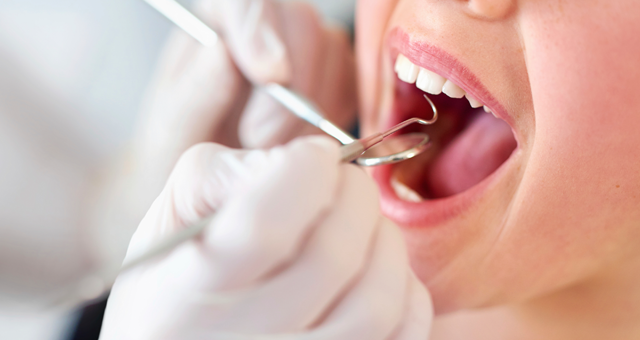
Children’s teeth start forming when they are in the womb. Teeth may be seen from the ages of four months, these teeth are known as primary or milk or deciduous teeth. By the age of three, twenty teeth should be present. The rate and the order which the teeth erupt will vary from child to child. The first permanent tooth is seen at around six years. At around six to seven years, the primary teeth are exfoliated (fall out). The central incisors on the bottom and the top are the first to go. Generally children become anxious with a loss of a tooth, worrying about blood and pain, but this maybe overcome with the tooth fairy awarding them with some cash incentive. At around six years old, the first permanent tooth erupts. The molars erupt first in the upper and lower jaw behind the existing last primary teeth in the jaw. The lower central incisor erupts and it is common that they erupt behind the primary central incisor. But after several weeks-months this will fall in the right position. Other teeth usually erupt where the gaps are present from the shedded teeth. Parents are the carers for babies and toddlers teeth and it is their responsibility to teach them to look after their teeth, gums and mouths. Oral infections such as oral thrush, mouth ulcers, cold sores and hand foot mouth are some common problems. Children’s teeth should be regularly checked and this will help the child to get into a good routine for the rest of their life. The usage of dummies in very early ages is thought not to create a problem, but it should be stopped before the eruption of permanent teeth. If it persists, there are several consequences such as cross bite, deep palate. Dummies should not be soaked in any sweet sugary substance, should be kept clean and safe. Thumb sucking is not a concern until about 4 years of age or when permanent teeth appear; after this time, it could cause dental changes. Wrapping the finger with a band aid, painting on stop aid nail polish may help in stopping the habit. Caries can start at an early age if not monitored properly. In infants, the front upper four teeth are commonly affected. This is commonly due to incorrect usage of baby bottles, e.g. juice in the bottle. Signs of early childhood caries are dull white line across the gum line. This is the first sign. Usually bacteria found in the plaque converts sugar into acids which dissolves the mineral in the tooth enamel. Brown or black area around the tooth indicates it is actually a hole. Brownish black stumps show that the hole had become advanced. Usually the upper teeth are involved not the lower teeth. It is very important that parents check they children’s teeth on a regular basis. It is very important that the following is followed: Take the bottle away when the child has had enough. Use cooled boiled water if the child needs a bottle for comfort or extra fluids. Introduce the child to a feeding cup between six and eight months of age. In most cases, the bottle can be discarded when the child is 12 months old. Encourage children to drink water rather than fruit juices or sweet drinks when thirsty. Make an appointment with the dentist regularly for a check-up. If the child is scared, take them along to your appointment and make them sit on your lap. If there are any concerns, the following people can be contacted in your local area: Your dentist Your doctor Your local council – some have a preschool dental program Community Dental clinks, Dental Health Services Victoria Tel. 1300 360 054 8.30am to 5pm, Monday to Friday or 1800 833 093 (country) Dental Health Services Victoria Information Line Tel. 1300 360 054 8am to 5pm, Monday to Friday The Maternal and Child Health Line (24 hours) Tel. 132 229 NURSE-ON-CALL Tel. 1300 60 24 – for expert health information and advice (24 hours, 7 days) Royal Children’s Hospital Tel. (03) 9345 5344, 9am to 5pm, Monday to Friday

